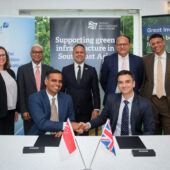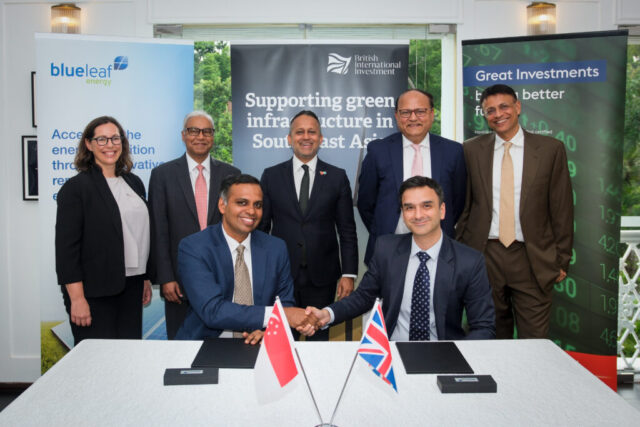The investment will help Mombak to scale up its operational and technology systems, as it implements a $100m strategy to reforest parts of the Amazon basin, generating carbon removal credits by capturing atmospheric carbon dioxide.

AXA IM Alts, part of Axa Investment Managers, is making a $49m (€38m) investment directly into reforestation projects run by Brazilian-based Mombak, which increase the amount of carbon dioxide captured from the atmosphere, while reversing environmental degradation in Brazil. Additionally, the investor is also taking a minority stake in Mombak.
Mombak aims to reforest over 10,000 hectares of degraded pastureland by planting native species in plantations and assisting natural regeneration, producing financial returns through the creation of up to 6m carbon credits. The company has said it is building the largest carbon removal projects in the world.
Axa IM’s equity investment in Mombak is intended to help the company scale up its operational and technology systems. Other investors in Mombak include Bain Capital Partnership Strategies, Kaszek Ventures, Union Square Ventures, CI Ventures, and Byers Capital.
Mombak formally launched a reforestation strategy last December, which, it said would require $100m to implement. It said reforestation was the world’s largest opportunity to remove carbon from the atmosphere, and the Amazon rainforest was the largest opportunity to carry out reforestation.
Satellite imagery analysis, drone imaging and bioacoustic sensors are among the technologies the company’s team of specialists use for land selection, choosing the best tree species to plant and measuring carbon and biodiversity gains.
Adam Gibbon, natural capital lead at AXA IM Alts, said reforestation globally had the potential to capture 2-3bn tonnes of CO2 a year.
“The forests Mombak restore will be 100% native species, providing habitat to countless species, restoring local hydrological cycles and providing more jobs per hectare than the cattle pasture they replace,” he said.
Reversing deforestation
Scientists say there is an urgent need to scale up such efforts to reverse deforestation. The Brazilian Amazon rainforest lost more than 1.1m hectares in the year to end-July 2022 alone through deforestation, as livestock and crop farming continued to expand in the region, according to Brazil’s National Space Research Institute (INPE). Land use change, mainly deforestation, is estimated to be responsible for up to around a fifth of global greenhouse gas emissions, as well as impacting run off from watersheds and causing the loss of thousands of species of flora and fauna yearly.
Brazil is part of a group of around 140 countries that signed an agreement at the 2021 COP26 climate talks in Glasgow to halt and reverse deforestation globally by 2030. Brazil’s left-wing president Lula Da Silva has said achieving this is a central plank of the country’s environmental policy, and that his government would step up action to tackle illegal logging and cattle ranching. Government action against illegal loggers had decreased during the presidency of his predecessor Jair Bolsonaro, a right winger in power from 2019-22, who was sympathetic towards expansion of agri-business.
Peter Fernandez, chief executive and co-founder of Mombak said in December investment in reforestation was crucial, given the Amazon, which had already been 20% deforested, was also home to over 10% of the world’s biodiversity, 20% of the world’s freshwater, and crucial in providing livelihoods for local communities.
“The market price of high-integrity carbon removal credits is now sufficient to make large-scale native, biodiverse reforestation a scalable climate strategy,” Fernandez said.
Fernandez has worked with various startups, philanthropic initiatives and tech firms in the US and Brazil. He also remains chief executive of Sao Paolo-based ride-hailing app company 99, which was sold to Chinese transport app provider Didi Chuxing in 2018 in a deal that reportedly valued 99 at more than $1bn. In May, 99 said it planned to more than double the number of electric cars serving passengers in Brazil over the following 12 months.
The AXA IM Alts’ investment in Mombak is part of the investor’s natural capital and impact investing strategy, which finances activities that help protect vulnerable or high value natural habitats from deforestation and restore natural ecosystems.
AXA IM Alts says it makes direct investments in ecosystem protection and restoration, as well as investments addressing drivers of deforestation and degradation, quantified through the issuance of carbon credits. The portfolio combines equity investments in project developers and companies supporting ecosystem-related capital markets with direct project financing.
Projects capturing carbon from the atmosphere are becoming increasingly attractive targets for impact investors, given the potential to achieve environmental goals while generating income from carbon removal credits. In June, Impact Investor reported on a UN-backed initiative to accelerate reforestation, and we have also taken a look at some of the other opportunities opening up to invest in carbon removal.





